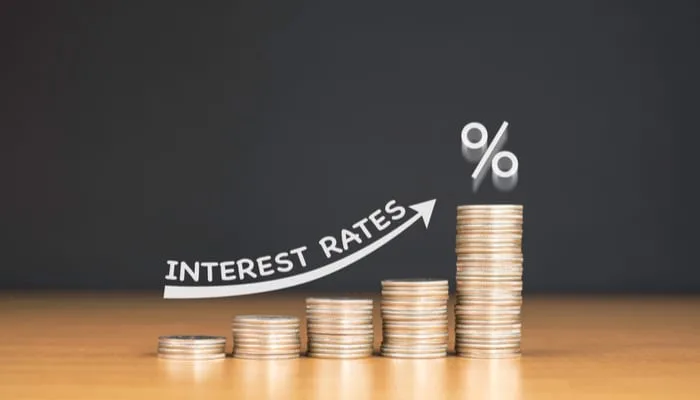Hard-money lenders are third parties with lots of cash willing to invest it in short-term real estate projects.
But what types of loans do they write? And what interest rates do hard-money loans incur? Read on to find out.
What Is a Hard Money Loan?
Hard money loans are real estate loans based on the value of the collateral you’re offering, such as the property itself, rather than the ability you have to repay the loan to the lender. The various types of loans include:
- Fix-and-flip loans: These loans let a real estate flipper buy a home to fix up fast so it can be sold for a profit and the loan repaid
- Bridge loans: These are intended to help someone buy a property fast with the goal of refinancing or reselling it. They also allow someone to buy a new property before they get enough for a down payment from the sale of the home they’re currently trying to sell.
- Construction loan: These are for real estate developers to quickly begin a new construction project with the goal of either selling it quickly once complete or refinancing it
- Owner-occupied loans: These allow a person who doesn’t qualify for other financing to purchase a property for their personal use
That’s just a quick overview of a few different hard-money loan options. Remember, hard money lenders are private firms and individuals that may consider granting loans under different circumstances and on a case-by-case basis.
So, if you think you’re interested in a hard money loan but don’t fit into one of the situations above, don’t give up. You may find a lender who is willing to help you out.
What Kind of Properties Can You Buy?

Shutter_m/Shutterstock
A hard money loan can be used on pretty much any type of property, from single-family homes to land deals to commercial and industrial properties. You may find some lenders who specialize in loans for specific types of properties.
In fact, most hard-money lenders operate in a niche because it’s something they’ve become familiar with.
When you talk to a hard-money lender, make sure to find out up front what kinds of loans they’re able or willing to do.
How Hard Money Loans Work
A hard-money loan is not a loan available to just anyone. Most lenders won’t consider granting loans to people who aren’t real estate investors. If you think you may be able to get one for your private home, then you might be out of luck.
There are a few lenders who make hard-money loans to consumers, but that wades into murky regulatory waters, so most lenders avoid it.
Hard money loans are only meant for short periods of time, normally less than a few years. In fact, most lenders use 12-month terms.
That means that payments aren’t applied equally to interest and principle. For a hard-money loan, you normally only pay interest and sometimes have no payment at all.

Create Jobs 51/Shutterstock
These loans have a few perks that are especially appealing to real estate investors, such as:
- Fast financing, sometimes in a week or less
- Short loan terms, usually one year or less
- Hassle-free application process
To qualify for a hard money loan, you often need to be able to put some of your own money down, too. Every lender is different, but they normally require a cash amount based on the Loan-to-Value (LTV) ratio or after-repair rate of the property you’re looking to finance.
A lender may only give you a maximum of 80 percent of the LTV ratio, which means you’ll need to come up with the remaining 20 percent on your own.
The loan is then paid off at the end of the term with a balloon payment. This covers the entire principle of the loan and any interest that remains, along with any fees that originated with the loan. That’s pretty much it!
Conventional vs Hard Money Lenders
If real estate loans live on a spectrum, then on one end you have hard money loans, and on the other end you’ll find traditional, conventional loans.
They’re pretty much polar opposites of one another. The only thing they have in common is that they’re required to buy real property. That’s it.
Private companies or individuals frequently provide hard-money loans. They carry very different terms than the types of loans you find at your local bank.
Hard money loans usually have very high interest rates and very short repayment periods compared to other types of loans. But, unlike traditional loans, they’re fast and easy to apply for.

Jirsak/Shutterstock
Why are they easier? While they have the same underwriting standards as more traditional loans, hard money lenders are more likely to be forgiving of things other lenders aren’t, such as recent bankruptcies, forecloses, or bad credit.
What a hard-money lender cares about is the value of the property that serves as collateral and the loan-to-value ratio. Regular lenders tend to focus more on the credit rating and income of the borrower.
That’s not to say it’s free for all. Since Dodd-Frank regulations have been put into place, the lender must verify the ability of the borrower to replay by analyzing their expenses and income to ensure that the old debt-to-income ratio is right.
Plus, if lenders want to loan to private individuals, they have to undergo licensing requirements with the National Multistate Licensing System and Registry to do so.
That’s an expensive process to go through, which is why in most states you won’t find a lot of private lenders that issue owner-occupied loans.
Things to Consider
Hard money loans may seem like the answer to all your real estate prayers, but there are definitely some things you’ll want to consider before pursuing this type of loan. First, let’s talk about a few of the benefits of a hard-money loan. These include:
- Fast money: You won’t spend months filling out forms for hard money loans. Real estate investors can apply and get funding, usually in a matter of days.
- Flexible terms: You’re working with private firms and individuals with hard-money loans, not massive banking institutions. That means that the lender often has more customized loans available to fit your needs.
- Lenient requirements: A traditional mortgage requires certain standards of income, credit, and debt. Hard-money lenders are required to look at those factors too, but they’re much more interested in collateral. In other words, if you have a property, then they will come.
- Increased opportunities in investments: When you have access to large amounts of flexible, fast cash, you can usually swoop in to get in on the really great investment properties. That type of access can really make or break a real estate investor.
The Downfalls of Hard Money Lending
Even with all the value hard money loans can provide, there are a few disadvantages when it comes to them. These include:
- Lack of oversight: When compared with a more conventional consumer mortgage, there’s not a ton of government oversight on hard money loans, especially for the purpose of business. That’s why you really have to know what you’re getting yourself into before entering into a deal with a lender who may have dishonest motives.
- Short terms: The short lending terms are a blessing and a curse. It allows you to not carry the loan around for a long time, but it also means you need to sell or refinance the property relatively quickly so you can pay the loan back when it comes due.
- High fees: A lot of lenders will pile on the fees for a hard-money loan, such as construction draw fees, early-repayment penalties, underwriting fees, and origination fees.
- High interest rates: On top of all those fees, hard money lenders also charge high interest rates, often into the double digits.
- Red tape for refinancing: If you need to refinance the loan with a traditional mortgage lender, then you can run into some trouble. That’s because it may be required for you to have owned the property for a certain period of time before you can refinance. This can throw a wrench into your plans if your hard-earned loan is due before you can refinance.
When to Use a Hard Money Loan

Andrey_popov/Shutterstock
Hard money loans are normally used as a tool by real estate investors, and they come quite in handy in a few situations. You may want to consider a hard-money loan if:
You Have Bad Credit
Hard-money loans are usually based on collateral, not your ability to repay them. So, if you have bad credit and have hit a dead end with conventional mortgages, you may want to explore this option a bit more.
You Can’t Get Financing Anywhere Else
Real estate investments are tricky, and getting a conventional mortgage is difficult in even normal circumstances. Banks don’t like to make loans for investments, either.
If you’ve hit these roadblocks, then you might want to dig a little deeper into hard-money loans to fund your investments.
You Need Money Quickly
Real estate markets can move fast, and if you’re not ready to move in, you could really miss out on good investment opportunities. Hard-money loans are a lot faster, getting you money quickly.
Should You Avoid Hard Money Lenders?
There’s no denying that hard money loans can open up a lot of real estate investment doors for you, but they can close just as many. You should avoid these types of loans if:
You Don’t Have a Good Plan
It’s absolutely essential to have a refinancing plan in place if you’re going to get a hard-money loan. Although you may think you can simply sell your property before the loan is due, that may not happen.
Know the requirements for refinancing before you sign on the dotted line for the loan.
It’s a Buyer’s Market
Selling the home after rehabbing it is what most real estate investors have in mind, but if homes aren’t selling in your current market, then that may not be a reasonable expectation.
Refinancing is necessary if you can’t sell the house to avoid facing foreclosure by the lender.
You Have Other Options
It’s an unfortunate truth that hard-money loans are expensive and can fall prey to predatory loan practices.
They really should only be considered a last resort and only be used by people who know what they’re doing. Do your due diligence and explore all loan options first.
How About Interest Rates?
If you bemoan the interest rates for credit cards, then you haven’t seen anything yet! That’s because hard money loans have about the same level of interest as a credit card but at a higher amount than a mortgage.
Most hard-money loans will charge between 5 percent APR and 15 percent APR or more.

Doubletree Studio/Shutterstock
The one saving grace of these interest rates is that they’re for the short term.
With other mortgage loans or credit cards, you have decades to pay off the balance on the loan and pay interest on it. With a hard money loan, you’ll only carry it for a year or two.
Hard Money Lenders
You can use your old friend Google to help you find a hard money lender. However, like a box of chocolates, when you find a hard money lender via a Google search, you never know what you’re going to get. A few reputable hard money lenders you may want to look into include:
- Lima One Capital: Specialize in fix-and-flip hard money loans
- Visio Lending: If you’re a landlord looking to grow your rental portfolio, then this one is for you
- Delancey Street: For those who want a hard money loan for residential or commercial projects
- Patch of Land: For residential fix-and-flips as well as commercial real estate investors
- LendingHome: Fast and competitive funding for residential fix-and-flips
- Finance of American Commercial: For the development, purchase, and flip of commercial properties
- CoreVest: For large real estate portfolios, they offer loan limits up to $100 million
You can also find out who lends money based on collateral in your area through local real estate investor groups or real estate agents. They can provide you with the names of investors to reach out to and discuss your planned projects.
How to Get a Hard Money Loan
If you have decided that a hard money loan is the right option for you and you have a lender, then how do you go about getting one? Pretty easily, it turns out.
A lender will want to make sure you fulfill their requirements to borrow money, as in, you have a property to purchase as collateral.

Kittisak Jirasittichai/Shutterstock
They’ll want to know what it’s worth, what the ARV will be, and what the appraisal on the property came back as. And don’t forget, you may need a down payment if the ARV is greater than its current value.
Every lender is different, of course, and you may have to provide additional information or meet other standards. The only way to know is to ask the lender directly, then start the process!
The Hard Line on Hard Money
For some people, hard money loans are a great fit. But those are usually people with a real estate portfolio to back up their business interests.
When you’re considering a hard money loan, pay close attention to loan terms, fees, and interest rates.
You know you’re going to pay more money for this type of loan, but you still don’t want to pay too much; otherwise, it could tank your real estate venture before it even gets off the ground.

